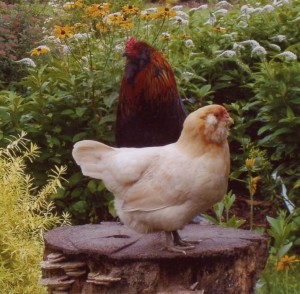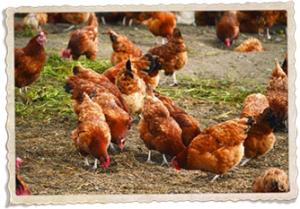Believe it or not, not all chickens are the same. Some are hardy, others not; some are best for egg production, others for meat. There are even some chickens that have a genetic abnormality that other species do not. Known as chicken tufts, these are found only in the Araucana breed and their descendants.
What are chicken tufts?
Chicken tufts are essentially a group of feathers that cluster and grow around the peduncle—a flap of skin near a chicken’s ear. The tufts grow as a result of a genetic mutation that are only carried by Araucana chickens, or mixed breeds derived from them such as Easter Eggers (Ameraucanas). Not all tufts look the same, and it entirely depends on the breed and the individual chicken. Some tufts, for instance, hang straight down, while others will curl upwards.
Do all Araucanas have tufts?
Simply put—no. Just because you purchase an Araucana chicken or a similar mixed breed doesn’t guarantee chicken tufts. Only about 25% of all Araucana birds hatched each year will develop tufts, while the other 75% will be “clean faced.” There are even some that may develop uneven tufts or tufts on one side of the head. This all impacts whether a chicken conforms to perfection standards for the breed (in order to score well, a chicken must have even chicken tufts).
How to breed for tufts in your flock
In order to hatch chicks with tufts, they must first have at least one tufted parent. This will give you about a 50% chance of receiving tufted offspring. You will have a higher chance of a tufted offspring if you mate a tufted hen with a tufted rooster (about a 75% chance), but keep in mind that some of the eggs may not hatch this way (about 25%).
Chicken tufts are a unique and beautiful feature, and they’ll certainly help add some variety to your flock. Here at Chickens for Backyards we have Easter Eggers, as well as plenty of other chicken species for your flock. Give us a call at 888-412-6715 today to learn more.

